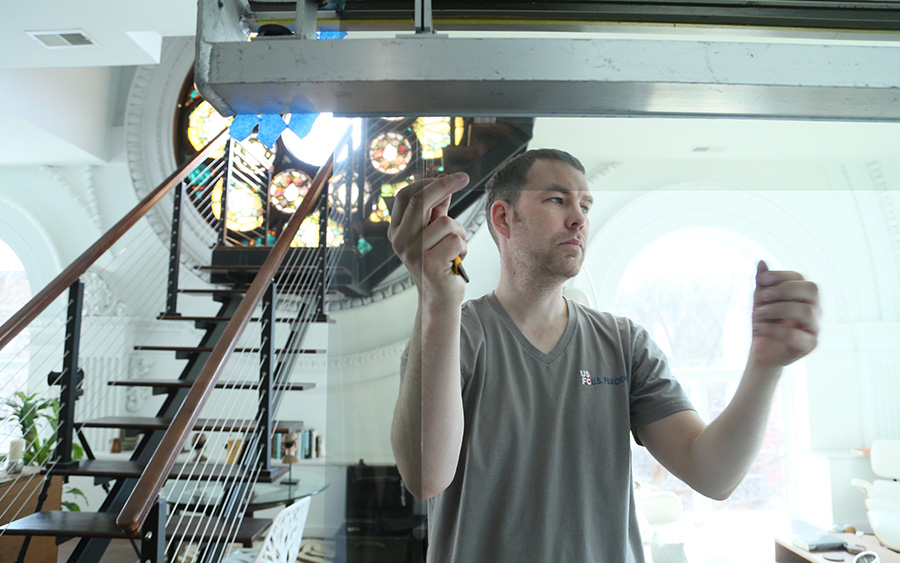Adding more windows to your residential space can be a great design choice that will help break the monotonous look of concrete and wood construction.
It will give your home an open feeling, letting you enjoy the fresh air and the warmth of the sun.
That said, windows need to be well cared for if you want to enjoy the benefits without experiencing the concerns that are sometimes associated with them; excessive glare, temperature issues inside your home, privacy concerns, and exposure to ultraviolet radiation are all that can be addressed with the use of high-quality residential solar window film.
Solar window film is a thin layer of self-adhesive polyethylene terephthalate (PET) laminate that can be installed on your windows to resolve the issues mentioned above.
In this post, we will take a detailed look into the benefits of residential solar window film, its types, and general concerns associated with it.
Different Types of Solar Window Film
Before you consider installing solar window film for your home, you should know about the different solutions available on the market.
Dyed Window Film
The cheapest type of solar window film on the market, dyed window film, as the name suggests, has a dyed layer of polyester coating. The darker tint is perfect if you prefer extra privacy.
Deposited Window Film
Deposited window film has a layer of metal—usually, chromium or nickel—deposited using a process known as physical vapor deposition. This type of film is thicker than usual and has a reflective outer layer.
Sputtered Window Film
This type is similar to the deposited window film, but instead of the physical vapor deposition process, manufacturers use a sputtering process to transfer metal atoms to the polyester layer. Sputter window film is better at blocking UV radiation.
Hybrid Window Film
Aptly named, this window film solution has both metal and dye layers on top of the polyester layer, giving you the best of both worlds without any of the disadvantages.
The Benefits of Residential Solar Window Film
There are several benefits of window film. Some of the most common benefits include:
Lower Utility Bills
One of the biggest concerns associated with windows is that they make it harder to maintain the indoor temperature of your home during different seasons. An average American home spends up to 25-30% more on their energy bills due to heat loss/build-up caused by windows.
That said, if you install solar window film, you can enjoy superior insulation in your space, which can reduce heat build-up during the summer months and heat loss during winter, helping you save a few bucks on your energy bills.
Enhanced Privacy and Security
Although aesthetically pleasing, windows are the weakest part of your space—thieves often target windows to break into homes to steal valuables. Also, the transparent nature of windows can encourage some curious eyes to peep into your business.
You can prevent all this with a good quality solar window film. It offers excellent shatter protection, meaning the film holds the glass in place even if it’s broken, and if you choose dark solar window film, you can block the view from the outside.
Improved Protection Against UV Radiation
More than 60% of American adults believe, mistakenly, I might add, that staying indoors will protect them from UV radiation. In most cases, this is not the case.
Regular glass windows have no UV resistance coating, and you can be exposed to these harmful rays even when you are inside your sanctuary. UV rays can also make your furniture and other valuables fade over time.
By installing solar window film in your space, you can block 99% of UV rays.
Glare Reduction
If you’ve tried to watch your favorite show on TV or wanted to work on your laptop during the day, you might have noticed some level of glare on these screens. The glare makes your viewing experience less than ideal.
You can eliminate this glare with a residential solar window film installation.
Things You Should Consider Before Installation
First and foremost, you should check with your homeowner association to see if they have any restrictions to altering the external appearance of your home. Some associations prohibit any alterations that cause the windows to appear dark.
Also, choose a window film solution that is suitable for your environment and climate.
Check for Visual Transmission (VT) and Solar heat gain coefficient (SHGC) values of the different solutions. If the VT value is higher than SHGC, that film is more suitable for hot climates, and vice versa.
Residential Solar Window Film to Enjoy Your Home Better
Choosing solar window films will allow you to enjoy your space more. Consider different measures discussed above, before you commit to installing solar window films.


